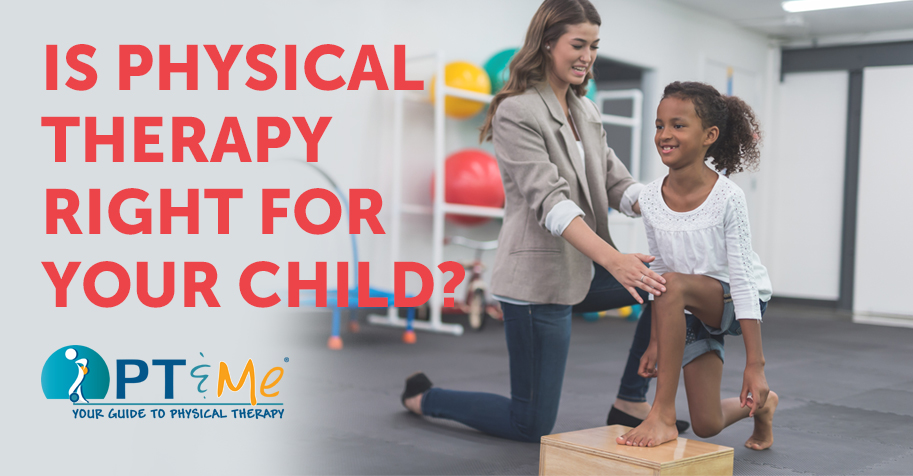
PEDIATRIC PHYSICAL THERAPY
is recommended for infants, children, and teens who have a musculoskeletal injury or who have movement problems from an illness, disability or disease. Physical therapy after an injury is required to decrease pain, improve range of motion and strength thus returning the youngster to pre injury status. We will also teach the child and parent strategies to prevent future injury.
What Can Therapy Do?
PHYSICAL THERAPY IS TYPICALLY RECOMMENDED WHEN A CHILD HAS LIMITATIONS IN MOBILITY AND DIFFICULTY WITH ADL’S (Activities of Daily Living).
What To Expect
In the pediatric population, physical therapists use purposeful play in the evaluation and treatment of each child. Following the child’s lead we create a fun and empowering treatment session. The primary role of physical and occupational therapists is to help children, play grow and achieve their developmental milestones. Skills are learned and mastered through the context of therapeutic play in hopes of enhancing performance of functional and purposeful activities. Developmental skills are emphasized allowing for progress toward age appropriate activities and movement patterns. This therapeutic approach addresses the needs of the child’s physical, social and emotional needs.
APPROACHES / TOOLS
• Strengthening, Endurance & Coordination
• Developmental Screenings / Evaluations
• Sports Rehab
• Orthopedic Rehabilitation
• Manual Therapy
The following is a list of diagnosis, conditions, or disease entities that may benefit from pediatric physical therapy:
• Acute Trauma affecting muscles, joints, or bone or limiting mobility and function
• Birth Defects such as Spina Bifida
• Developmental Coordination Disorders
• Cancer Related Fatigue
• Cerebral Palsy
• Developmental delays
• Down Syndrome
• Genetic disorders limiting mobility and function
• Diseases affecting the heart or lungs
• Head Injury
• In or Out toeing when walking
• Orthopedic disabilities or injuries
• Limp when walking
• Limb deficiency or Amputation
• Muscle diseases
• Muscular Dystrophy
• Muscle tone issues – spasticity or hypotonicity
• Spinal Cord Injury
• Sports injuries
• ACL knee injury pre or post op
• Shoulder Pain
• Ankle sprain / pain
• Toe Walking
• Back Pain / Scoliosis
• Torticollis
• Brachial Plexus injury
• Cerebral Palsy
• Elbow or hand pain
• Fetal Alcohol Syndrome
• Juvenile Arthritis
• Juvenile Diabetes
• Headaches / Neck pain
• Hip Pain
• Urinary Incontinence (from a specialist)
• Knee Pain
• Patellar dislocation
• Patella Tendonitis / Jumpers knee
• Obesity
• Osgood-Schlatters
• Sever’s Disease
• Shoulder dislocation

What Role Does Family Play?
Family participation is encouraged for successful implementation and carry over into the home environment. Comprehensive individualized home programs are created further empowering the family and child.
